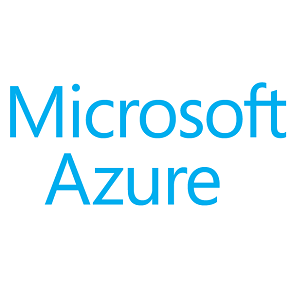
De Microsoft Azure architect technologies AZ-303 cursus omvat de virtualisatie, automatisering, netwerken, opslag, identiteit, beveiliging, gegevensplatform en applicatie-infrastructuur. Deze cursus schetst hoe beslissingen op elk thesegebied een algehele oplossing beïnvloeden.
In this module, you will learn about Azure virtual machines including planning, creating, availability and extensions. This module includes:
Lessons
- Select Virtual Machine Size
- Configure High Availability
- Implement Azure Dedicated Hosts
- Deploy and Configure Scale Sets
- Configure Azure Disk Encryption
After completing this module, students will be able to:
- Plan for virtual machine implementations.
- Create virtual machines.
- Configure virtual machine availability, including scale sets.
- Understand High Availability options for VMs in Azure
In this module, you will learn about the tools an Azure Administrator uses to manage their infrastructure. This includes the Azure Portal, Cloud Shell, Azure PowerShell, CLI, and Resource Manager Templates. This module includes:
Lessons
- Azure Resource Manager Templates
- Save a Template for a VM
- Evaluate Location of New Resources
- Configure a Virtual Hard Disk Template
- Deploy from a Template
- Create and Execute an Automation Runbook
After completing this module, students will be able to:
- Leverage Azure Resource Manager to organize resources.
- Use ARM Templates to deploy resources.
- Create and Execute an Automation Runbook
- Deploy an Azure VM from a VHD
- Understand Azure encryption technologies
In this module, you will learn about basic virtual networking concepts like virtual networks and subnetting, IP addressing, network security groups, Azure Firewall, and Azure DNS.
Lessons
- Virtual Network Peering
- Implement VNet Peering
After completing this module, students will be able to:
- Connect services with Virtual Network Peering
- Configure VNet Peering
- Understand Service Chaining
- Modify or delete VNet Peering
In this module, you will learn about network traffic strategies including network routing and service endpoints, Azure Load Balancer, Azure Application Gateway, and Traffic Manager.
Lessons
- Implement Azure Load Balancer
- Implement an Application Gateway
- Understand Web Application Firewall
- Implement Azure Firewall
- Implement Azure Front Door
- Implementing Azure Traffice Manager
- Implement Network Security Groups and Application Security Grou
- Implement Azure Bastion
After completing this module, students will be able to:
- Select a Load Balancer solution
- Configure Application Gateway
- Implement Azure Firewall
- Create an Azure Front Door
- Understand Traffic Manager routing methods
- Configure Network Security Groups (NSGs)
In this module, you will learn about basic storage features including storage accounts, blob storage, Azure files and File Sync, storage security, and storage tools.
Lessons
- Storage Accounts
- Blob Storage
- Storage Security
- Managing Storage
- Accessing Blobs and Queues using AAD
- Configure Azure Storage Firewalls and Virtual Networks
After completing this module, students will be able to:
- Understand Storage Account services and types
- Configure Blob storage, accounts, containers, and access tiers
- Implement Shared Access Signatures
- Understand Azure Storage firewalls and virtual networks
In this module, you will learn how to secure identities with Azure Active Directory, and implement users and groups.
Lessons
- Overview of Azure Active Directory
- Users and Groups
- Domains and Custom Domains
- Azure AD Identity Protection
- Implement Conditional Access
- Configure Fraud Alerts for MFA
- Implement Bypass Options
- Configure Trusted IPs
- Configure Guest Users in Azure AD
- Manage Multiple Directori
After completing this module, students will be able to:
- Understand how Multiple AAD organizations interact
- Add Guest Users to Azure AD
- Configure Location Condition Configuration
- Configure Azure MFA settings
- Implement Conditional Access Azure MFA
In this module, you will learn about managing your subscriptions and accounts, implementing Azure policies, and using Role-Based Access Control.
Lessons
- Create Management Groups, Subscriptions, and Resource Groups
- Overview of Role-Based Access Control (RBAC)
- Role-Based Access Control (RBAC) Roles
- Azure AD Access Reviews
- Implement and Configure an Azure Policy
- Azure Blueprints
After completing this module, students will be able to:
- Understand Resource Group 0rganization
- Understand how RBAC works
- Create an Azure AD access review
- Create and manage policies to enforce compliance
- Create a Blueprint
In this module, you will learn how to install and configure Azure AD Connect and implement Azure AD Connect Health.
Lessons
- Install and Configure Azure AD Connect
- Configure Password Sync and Password Writeback
- Configure Azure AD Connect Health
After completing this module, students will be able to:
- Implement Azure AD seamless Single Sign-On
- Perform an Azure AD Connect installation
- Implement Azure AD Connect Health
In this module, you will learn how to migrate workloads using Azure Migrate, perform VMware agent-based and agent-less migrations, and perform Azure Backup and Azure Site Recovery.
Lessons
- Migrate Workloads using Azure Migrate
- VMware - Agentless Migration
- VMware - Agent-Based Migration
- Implement Azure Backup
- Azure to Azure Site Recovery
- Implement Azure Update Management
After completing this module, students will be able to:
- Understand agent-based migration architecture
- Prepare for Azure for migration
- Prepare an on-premises VMware environment
- Understand Azure VM backup architecture
- Manage updates and patches for Azure VMs
In this module, you will learn about Azure Monitor, Azure Workbooks, Azure Alerts, Network Watcher, Azure Service Health, Azure Application Insights.
Lessons
- Azure Infrastructure Security Monitoring
- Azure Monitor
- Azure Workbooks
- Azure Alerts
- Log Analytics
- Network Watcher
- Azure Service Health
- Monitor Azure Costs
- Azure Application Insights
- Unified Monitoring in Azure
In this module, you will learn about Azure Key Vault and implementing authentication using Azure Managed Identities.
Lessons
- Azure Key Vault
- Azure Managed Identity
After completing this module, students will be able to:
- Explain Key Vault uses such as screts, key, and Cerficate management
- Use Managed Identities with Azure resources
In this module, you will learn how to create an App Service web App for Containers, create and configure an App Service Plan, and create and manage Deployment Slots.
Lessons
- Create and Configure Azure App Service
- Create an App Service Web App for Containers
- Create and Configure an App Service Plan
- Configure Networking for an App Service
- Create and Manage Deployment Slots
- Implement Logic Apps
- Implement Azure Functions
After completing this module, students will be able to:
- Configure an Azure App Service
- Create an App Service Plan
- Create a Workflow using Azure Logic Apps
- Create a Function App
In this module, you will learn how to run Azure Container instances and how to deploy Kubernetes with AKS.
Lessons
- Azure Container Instances
- Configure Azure Kubernetes Service
After completing this module, students will be able to:
- Run Azure Container instances
- Deploy Kubernetes with AKS
In this module, you will learn about Azure Table Storage and recommend options for CosmsoDB APIs.
Lessons
- Configure Storage Account Tables
- Select Appropriate CosmosDB APIs
After completing this module, students will be able to:
- Outline the Table Service Data Model
- Understand options for Azure Cosmos DB
- Understand high availability using CosmosDB
In this module, you will create an Azure SQL Database single database, create an Azure SQL Database Managed Instance, and review high-availability and Azure SQL database.
Lessons
- Configure Azure SQL Database Settings
- Implement Azure SQL Database Managed Instances
- High-Availability and Azure SQL Database
After completing this module, students will be able to:
- Create an Azure SQL Database single database
- Create an Azure SQL Database Managed Instance
- Recommend high-availability architectural models used in Azure SQL Database
Heeft u nog geen kennis met betrekking tot Microsoft Azure, dan raden wij u de training Microsoft Azure Fundamentals 2 dagen of Microsoft Azure Fundamentals 1 dag aan.
Op de overzichtspagina voor Microsoft trainingen kunt u ook andere gerelateerde trainingen vinden zoals de Microsoft Azure Administrator AZ-104, Microsoft Azure Architect Design AZ-304, Microsoft Azure Developer / Developing Solutions for Microsoft Azure (AZ-204)Microsoft Azure DevOps Engineer (AZ-400) en Microsoft azure security technologies (AZ-500).
De Microsoft Azure architect technologies AZ-303 training is bedoeld voor IT-professionals met expertise in het ontwerpen en implementeren van oplossingen die op Microsoft Azure draaien. Ze moeten brede kennis hebben van IT-operaties, waaronder netwerken, virtualisatie, identiteit, beveiliging, bedrijfscontinuïteit, disaster recovery, gegevensplatform, budgettering en governance. Azure Solution Architects gebruiken de Azure Portal en naarmate ze bedrevener worden, gebruiken ze de Command Line Interface. Kandidaten moeten vaardigheden op expertniveau hebben in Azure-beheer en ervaring hebben met Azure-ontwikkelingsprocessen en DevOps-processen.
Het niveau van de Microsoft Azure architect technologies AZ-303 cursus is MBO+.
Succesvolle Azure Solution Architects AZ-303 beginnen deze rol met ervaring op het gebied van besturingssystemen, virtualisatie, cloudinfrastructuur, opslagstructuren en netwerken.
Verder, heeft u;
De totale duur van de Microsoft Azure architect technologies AZ-303 training is 4 dagen.
De prijs voor deze training is inclusief de kosten van €195 voor het Microsoft Azure architect technologies bekend onder AZ-303 en het examen duurt ongeveer 210 minuten waar niet-native Engels sprekenden 30 minuten extra krijgen.
Meer informatie over het Microsoft Azure architect technologies AZ-303 examen kunt u vinden bij officiële aanbieder, dat is Microsoft.
Indien u uw bedrijf inschrijft voor een Microsoft Azure architect technologies AZ-303 incompany via D-ICT Solutions, mag u altijd één van onze trainers/consultants bij u langs laten komen (of virtueel) voor een implementatiesessie Microsoft Azure Tijdens deze middag of ochtend krijgt u een advies met betrekking tot het optimaliseren of inrichten van Azure binnen uw organisatie door een expert.
